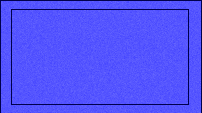












About IB
|
Language A: language and literature comprises four parts—two relate to the study of language and two to the study of literature. The study of the texts produced in a language is central to an active engagement with language and culture and, by extension, to how we see and understand the world in which we live. A key aim of the language A:language and literature course is to encourage students to question the meaning generated by language and texts, which, it can be argued, is rarely straightforward and unambiguous. Helping students to focus closely on the language of the texts they study and to become aware of the role of each text’s wider context in shaping its meaning is central to the course. The language A: language and literature course aims to develop in students skills of textual analysis and the understanding that texts, both literary and non-literary, can be seen as autonomous yet simultaneously related to culturally determined reading practices. The course is designed to be flexible—teachers have the opportunity to construct it in a way that reflects the interests and concerns that are relevant to their students while developing in students a range of transferable skills. An understanding of the ways in which formal elements are used to create meaning in a text is combined with an exploration of how that meaning is affected by reading practices that are culturally defined and by the circumstances of production and reception. The focus underpinning the approach to texts sees the study of the formal elements of each text as only one among several means of establishing a reading. As noted above, a wide range of factors, including the circumstances of production and reception, and the role of culturally determined reading practices, are seen as being equally important. A wider aim of the course is the development of an understanding of “critical literacy” in students. In view of the international nature of the IB and its commitment to intercultural understanding, the language A: language and literature course does not limit the study of texts to the products of one culture or of the cultures covered by any one language. The study of literature in translation from other cultures is especially important to IB Diploma Programme students because it contributes to a global perspective, thereby promoting an insight into, and understanding of, the different ways in which cultures influence and shape the experiences of life common to all humanity. Course syllabus: Part 1
Part 3
|
|
|
|
